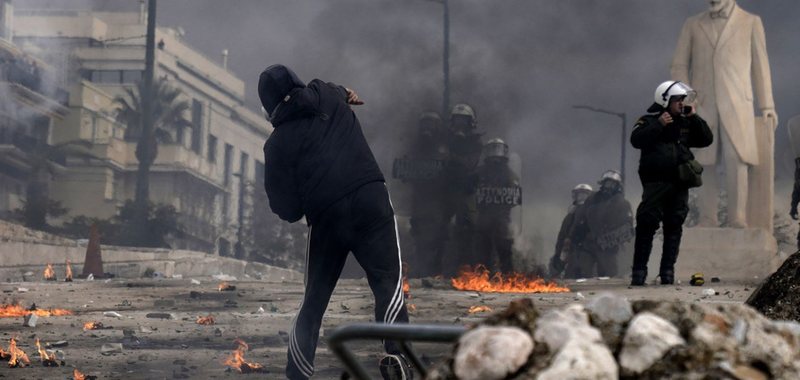"Better tanks than cars" - Military equipment production could "revive" the German economy

German defense companies seeking more capacity as Europe prepares to increase military spending are eyeing the ailing car industry, the first sign of a turnaround that could help revive the continent's largest economy after two years of contraction.
Tank, radar and weapons makers are looking to ramp up production as Europe responds to U.S. pressure to bolster its defenses. Meanwhile, carmakers, which have powered Germany's economy for decades, are cutting jobs and closing factories due to slowing demand and the transition to electric vehicles.
Rheinmetall, Europe's largest munitions maker, said last week it would repurpose two factories that currently make car parts to produce mainly defense equipment. Hensoldt, which makes radar systems, is in talks to take on about 200 workers from major auto parts suppliers Bosch and Continental.
European leaders have agreed they must spend more on their militaries at an emergency summit in London, following a public clash between presidents Donald Trump and Volodymyr Zelenskiy.
A few days after the meeting, the parties in talks to form Germany's new government announced proposals to create a 500 billion euro fund for infrastructure and to change borrowing rules to massively increase defense spending.
According to estimates by the Bruegel think tank, Europe may need 300,000 additional troops and a short-term annual increase in defense spending of at least 250 billion euros "to deter Russian aggression."
A shift toward defense production could provide a boost to the German economy, which has been struggling as businesses grapple with high energy costs, bureaucracy and aggressive competition from abroad.
The Kiel Institute for the World Economy estimates that the European Union's gross domestic product could grow by 0.9-1.5% per year if EU countries expanded military spending to 3.5% of GDP from NATO's current target of 2%. For Germany, with its existing industrial infrastructure, GDP growth is likely to be greater than for other countries.
Increasing defense spending to 3% of GDP would double Germany's annual investment to 25.5 billion euros, create 245,000 direct and indirect jobs, and stimulate nearly 42 billion euros in manufacturing and service activity each year.
The latest available figures show that the security and defense industry in Germany employed 387,000 people in 2022, about half the total in the automotive sector that year. Sales in the defense industry reached 47 billion euros in 2022, compared with 506 billion euros for the car sector.
Using spare capacity in the car sector would help preserve Germany's manufacturing infrastructure and increase the production of military equipment.
Analysts at Deutsche Bank warned, however, that the increase in EU defense spending may not bring significant benefits to the domestic industry, which is more fragmented than its American counterpart.
Former European Central Bank chief Mario Draghi, in a recent report on Europe's competitiveness, said that from mid-2022 to mid-2023, nearly four-fifths of EU defense procurement spending went to suppliers outside the EU.

New nationwide demonstrations and violent clashes erupt in Greece! The reason, the fatal accident of 2023!
Protesters in Athens threw petrol bombs and fireworks in clashes with police on Wednesday night, following a new wave of nationwide demonstrations demanding......

About 515 million claims paid for motor insurance - AMF: 86% from non-life. Those covered by the Compensation Fund fall
The value of damages paid by insurance companies in January of this year reached 686 million lek. The latest data from the Financial Supervisory Authority......

Reuters Exclusive: How the ECB avoided a payments disaster in 10 hours of technical glitch?!
The European Central Bank’s payment default last week delayed wages and welfare payments for thousands of people, and it could have been much worse. If the......

"Tariff war, trade war or any kind of war" - China: We are ready to fight the US to the end!
China said it was prepared to fight “any kind of war” with the United States as President Donald Trump ratchets up economic and political pressure on the......

Gold prices are at record highs! – But why are investors still interested in it?
Gold prices have risen more than 12% in the year to date and continue to reach record levels. Global uncertainty is one reason that is driving investors......

Trump temporarily suspends tariffs on car manufacturers in Mexico and Canada!
US President Donald Trump is giving automakers in Mexico and Canada a tariff exemption for one month after negotiations with key industry figures. “We spoke......

"Albania, the energy superpower of the region" - Berisha: We will use every resource to sell energy cheaper to Albanians
The Democratic Party has presented its program for energy and natural resources. The leader of this political force, Sali Berisha, stated that "we want to......

Exchange rate/ The US Dollar and the Swiss Franc weaken significantly!
The US dollar continued to fall this morning, losing points again from yesterday as it was bought today for 91.3 lek and sold for 93.3 lek according to the......





















